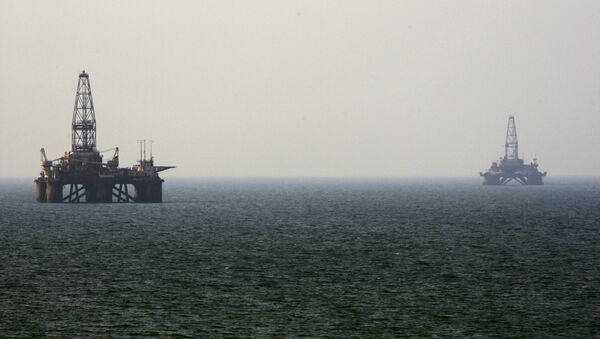According to Tayeri, the intention to reach an agreement on the issue and enhance cooperation in the Caspian Sea, demonstrated at the recent summit in Baku, could resolve the problem of transportation of Caspian energy resources into the waters of the Persian Gulf.
"From there, Asian countries which are in dire need of energy resources, will be able, without any risks and hazards, to build further transit routes," the expert stated.
"At the meeting, parties discussed the issue of the Caspian Sea; the resolution of its legal status, has unfortunately, been constantly ‘postponed indefinitely'. Many countries are actively using the energy resources of the Caspian Sea. But, for example, the Iranian share in this strategic water basin has not yet been determined," the expert said.
"Many Caspian countries say that the Caspian Sea is a closed water body which doesn't have access to free waters. But at the same time, it is obvious that through Iranian territory it would be possible, since the Islamic Republic can connect the Caspian basin with the Indian Ocean," Tayeri added.
Earlier, Russian President Vladimir Putin said that Russia was ready to discuss joint Caspian pipeline use with Iran and Azerbaijan.
"Russia, Iran and Azerbaijan can discuss the implementation of new energy and transport projects in the Caspian Sea… We really have something to talk about in this format. There may be new projects in the Caspian Sea, and in a broader context, I mean transportation, energy, and the diversification of trade and economic relations," Putin said.
According to a draft declaration which should be approved by the leaders of the three countries, the sides have agreed to intensify cooperation to ensure the sustainable functioning of both global and regional gas markets, among other measures.



